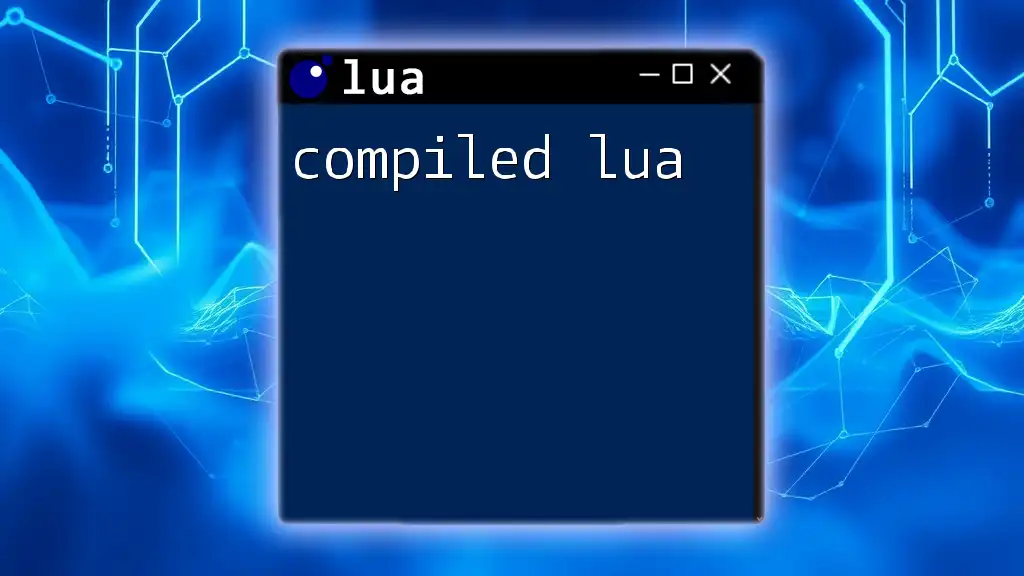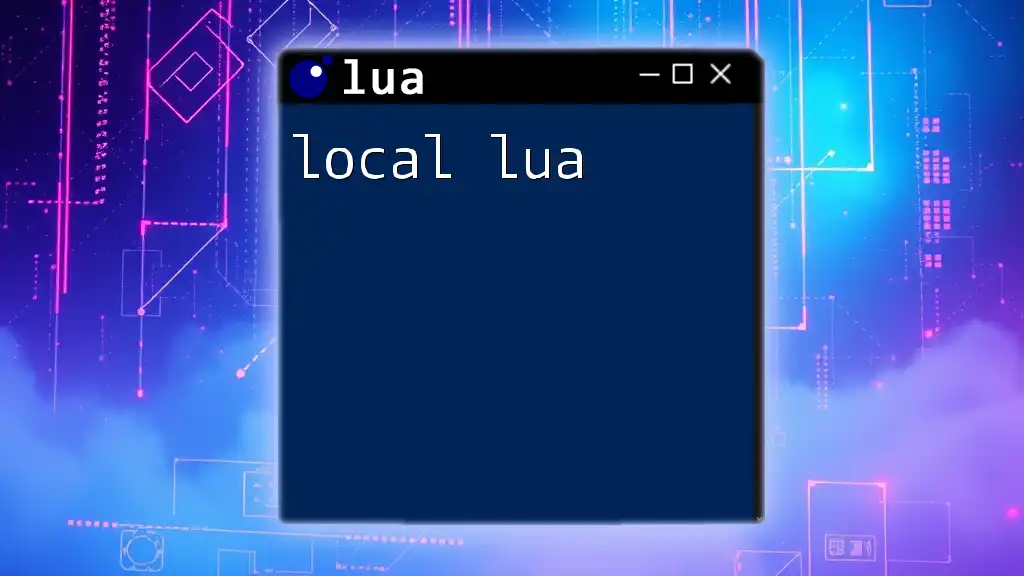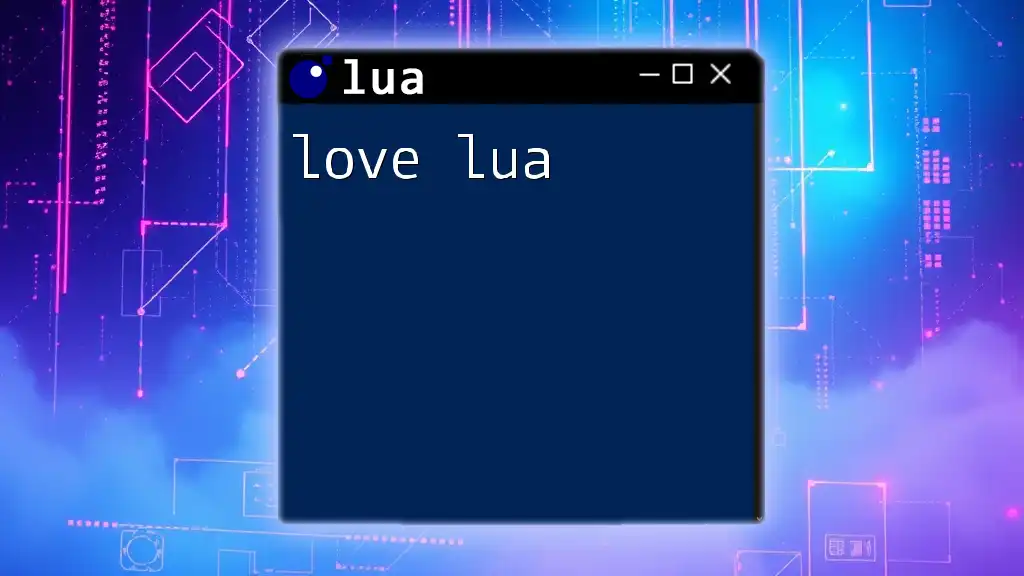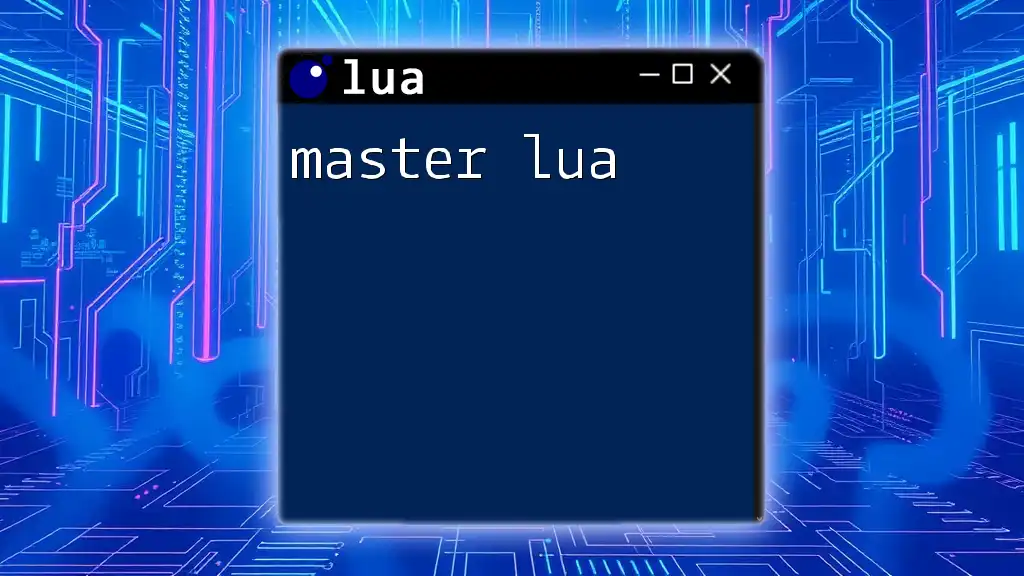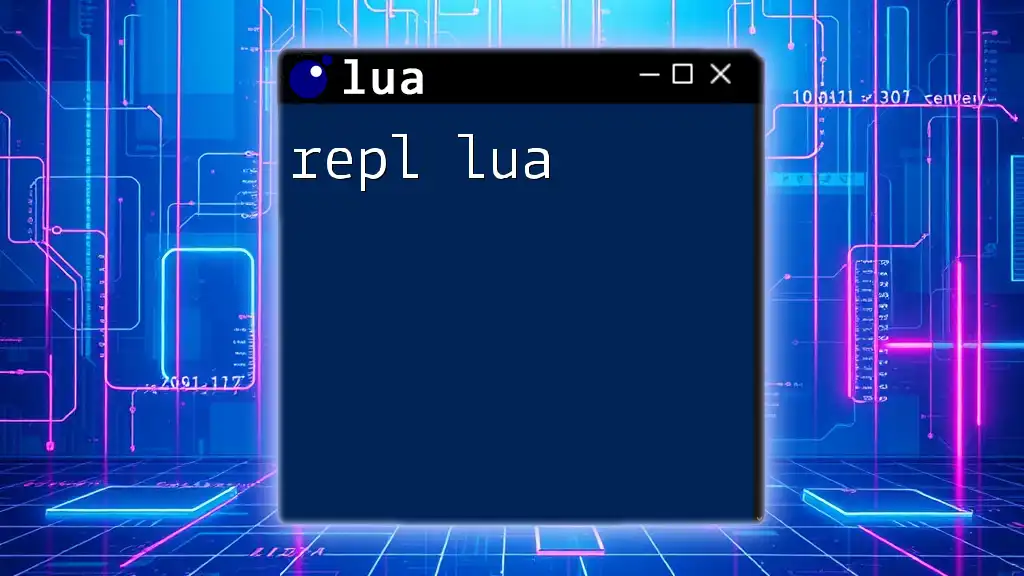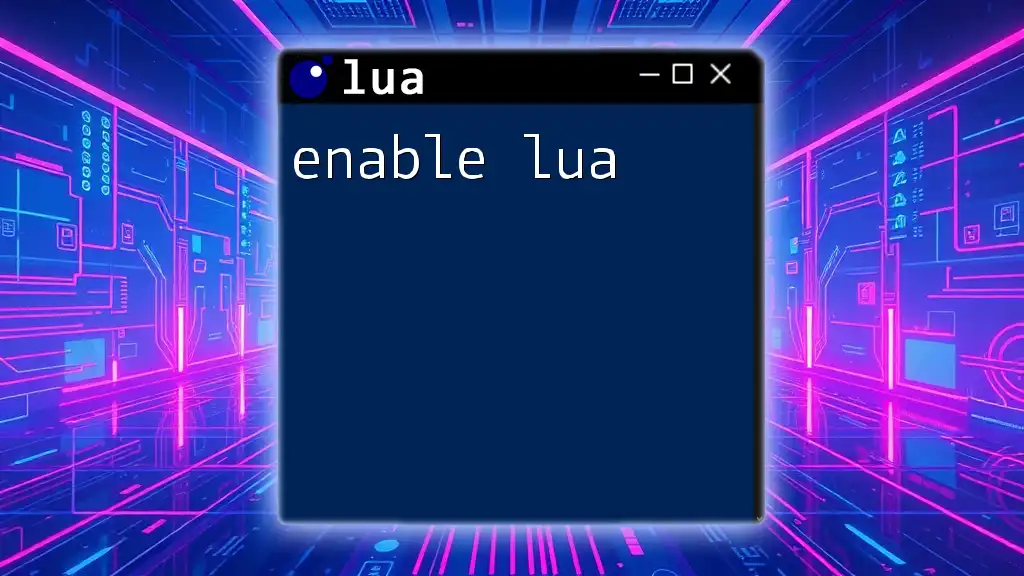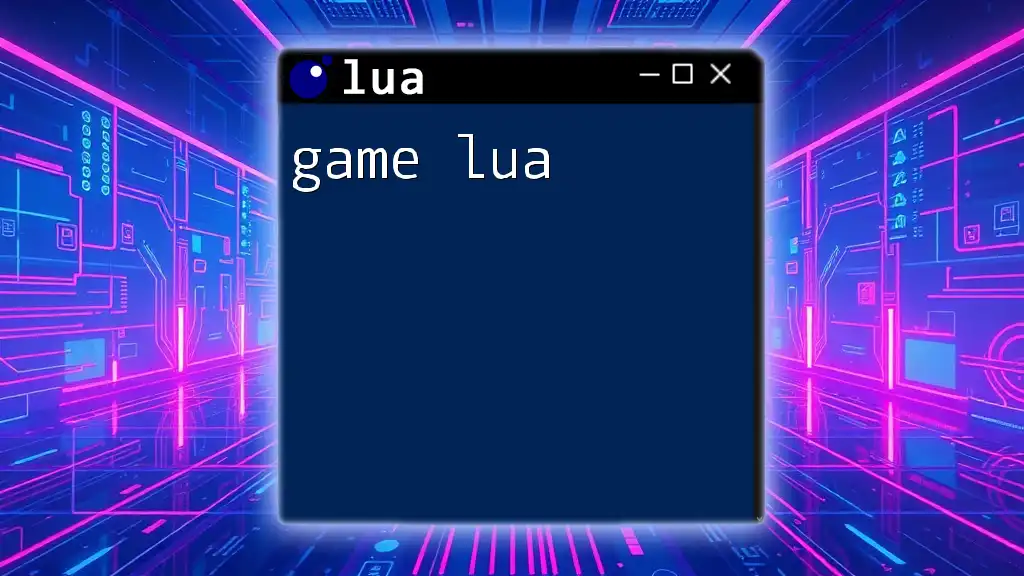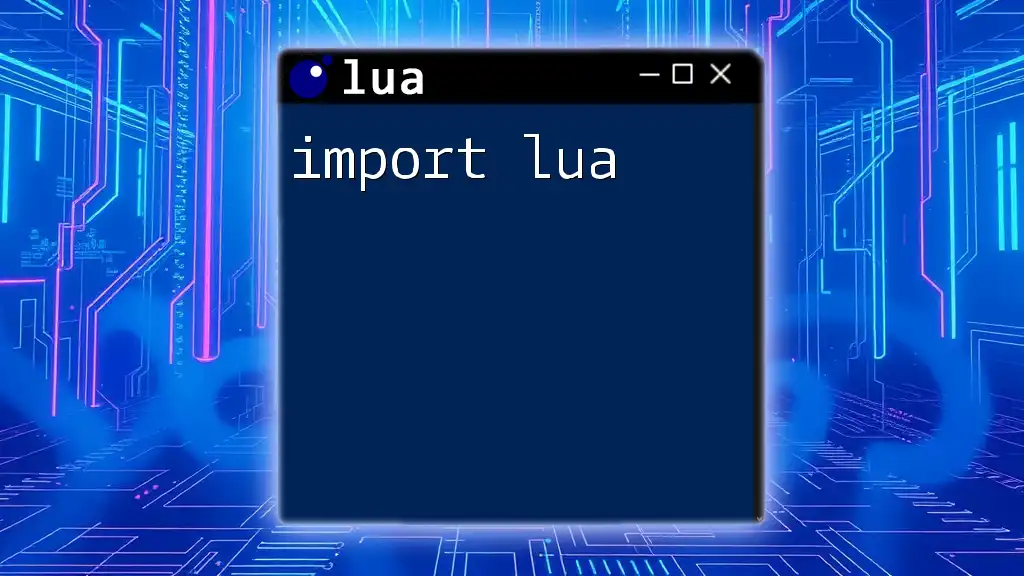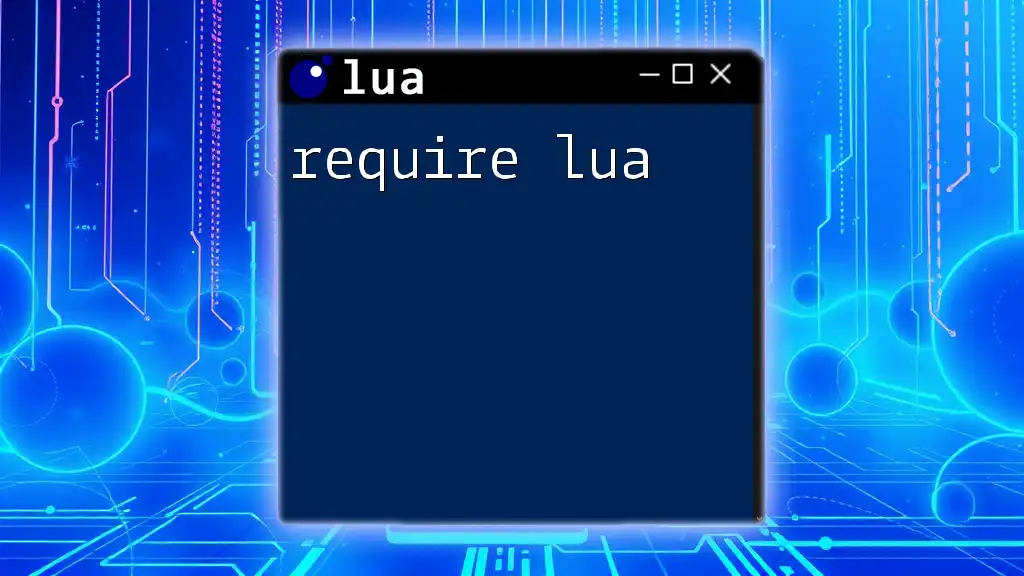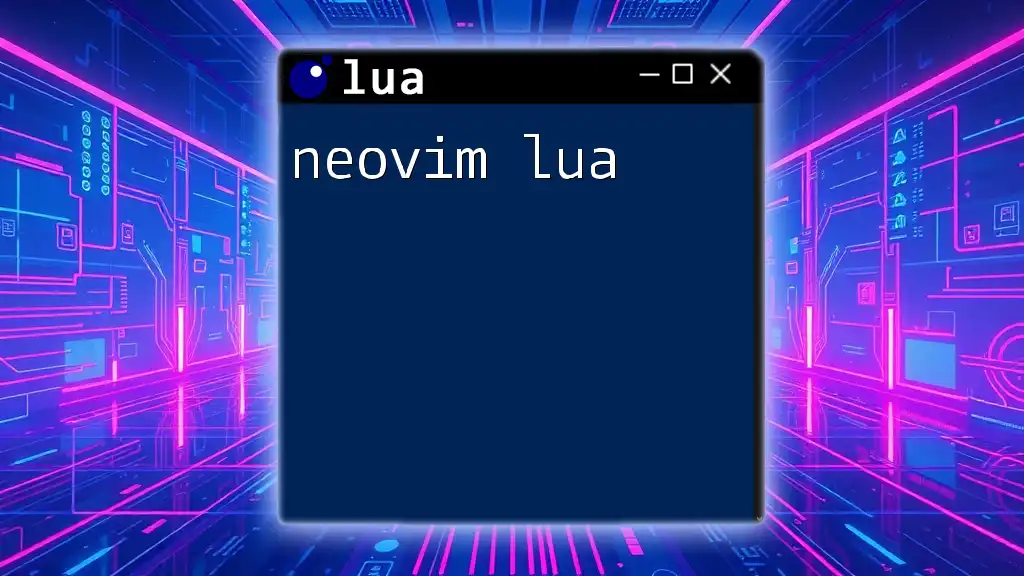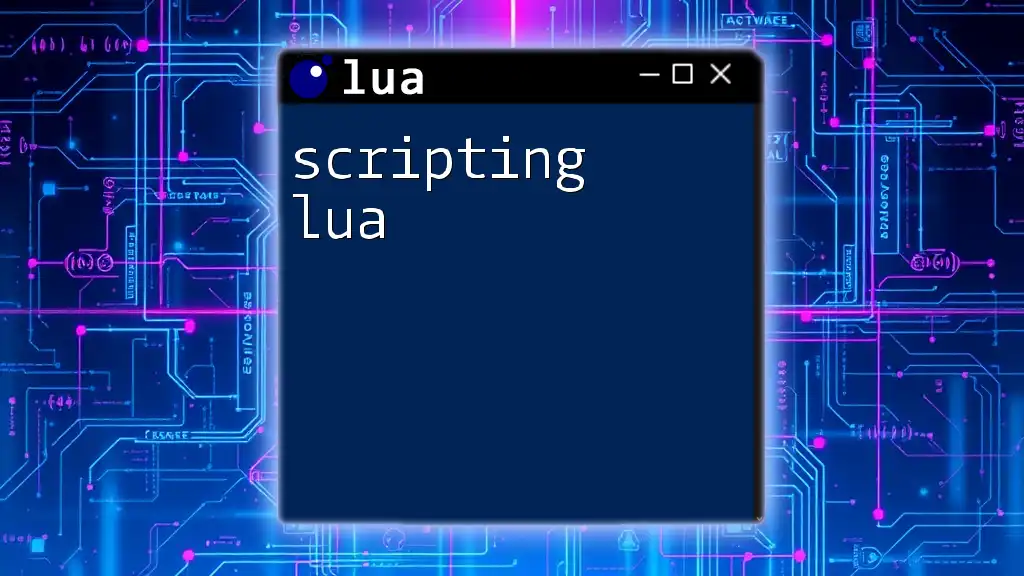Compiled Lua refers to the process of transforming Lua scripts into compiled bytecode to enhance performance and reduce execution time. Here’s a simple example that demonstrates the usage of a compiled chunk:
function greet(name)
return "Hello, " .. name .. "!"
end
print(greet("World"))
To compile this Lua script into bytecode, you would use the `luac` command in the terminal:
luac -o greet.luac greet.lua
This creates a compiled file `greet.luac` that can be executed using the Lua interpreter for faster execution.
What is Lua?
Lua is a powerful, efficient, lightweight, and embeddable scripting language designed primarily for extending applications. Renowned for its flexibility, Lua is simple to learn and integrates seamlessly with other programming languages, making it ideal for a variety of use-cases, including game development, web applications, and embedded systems.
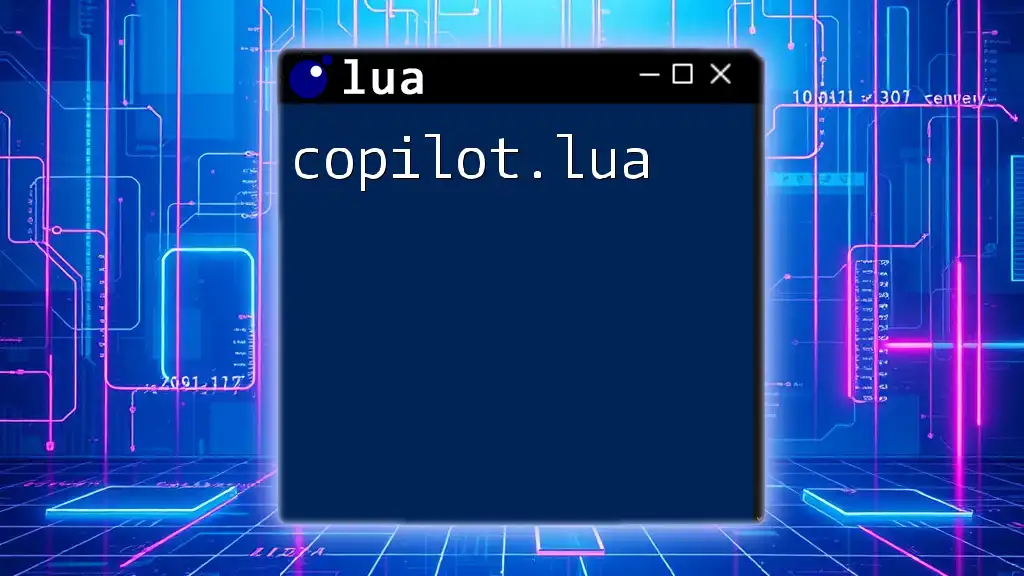
What is Compiled Lua?
Compiled Lua refers to the process of translating Lua scripts into bytecode before execution. This is distinct from interpreted Lua, where scripts are executed directly by the Lua interpreter line-by-line. Compiling Lua can notably enhance performance, reduce memory usage, and improve error handling.
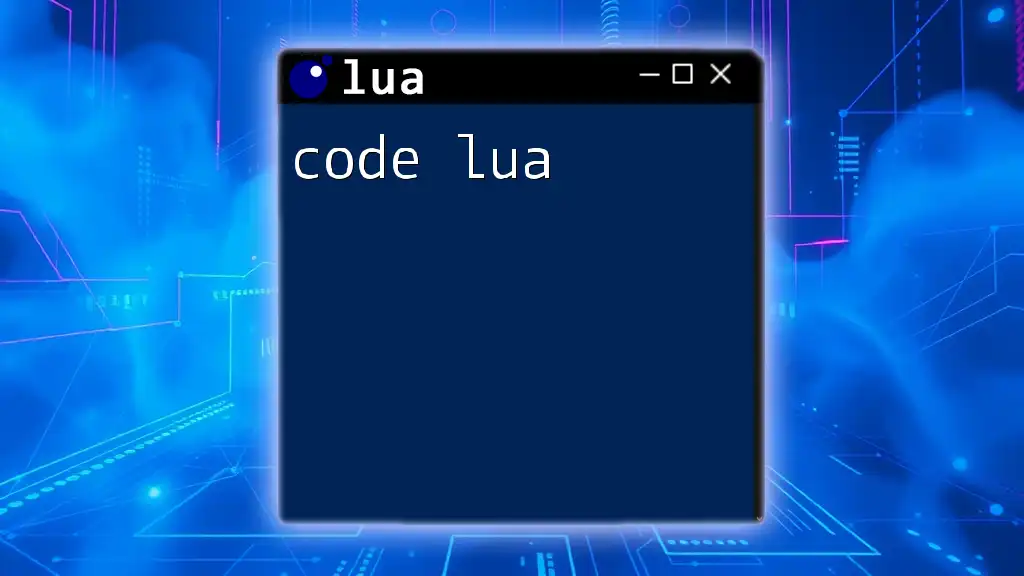
The Benefits of Compiling Lua
Improved Performance
One of the most significant advantages of compiled Lua is improved execution speed. Compilation transforms your Lua scripts into bytecode, which the interpreter can run much faster than the original source code. In many cases, the time savings can be substantial, particularly in performance-critical applications.
For example, a simple Lua operation repeated multiple times can see a marked performance improvement when compiled:
-- Slow interpreted loop
for i = 1, 1000000 do
print(i)
end
When this script is compiled and then executed, it can run significantly faster due to the reduced overhead compared to repeated parsing and interpretation.
Reduced Memory Usage
Using compiled Lua can also lead to reduced memory usage. Compiled bytecode is typically smaller than the equivalent source code due to the elimination of comments and formatting. This can be especially beneficial when dealing with larger applications, where memory resources may be constrained.
Error Checking at Compile-Time
Another compelling reason to utilize compiled Lua is the ability to catch errors at compile-time rather than at runtime. This preemptive error detection allows developers to address issues before the code is executed, leading to fewer unexpected crashes and bugs.
An example of catching errors would be missing end statements in a function. When compiled, the error is identified early on, providing a more robust development experience.
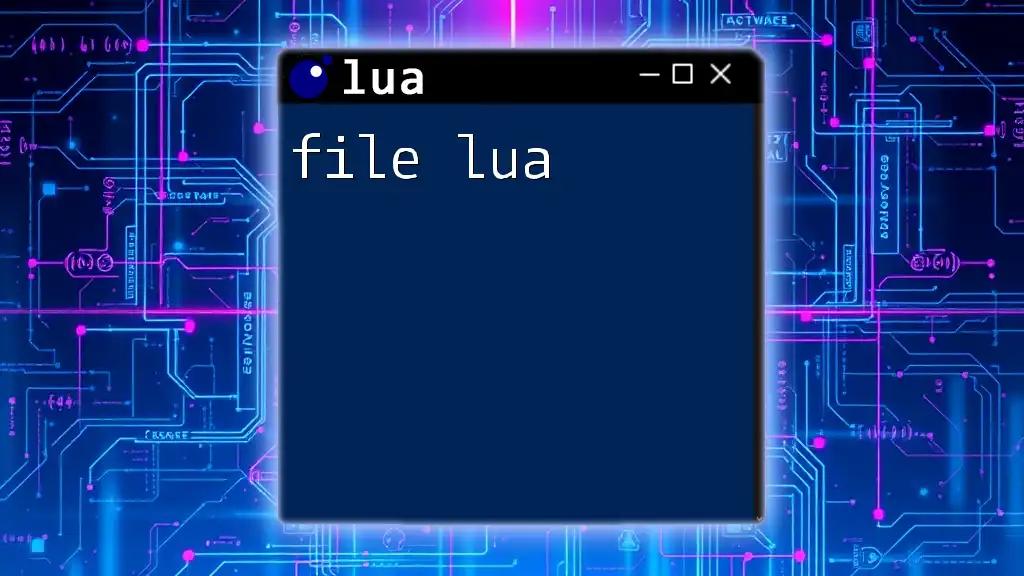
Getting Started with Compiling Lua
Tools and Environments
To start compiling Lua scripts, you need specific tools, such as the Lua Compiler (LuaC), which is included with the standard Lua distribution. Setting up your development environment typically involves downloading Lua and installing any necessary dependencies.
Compiling Lua with LuaC
To compile a Lua script using LuaC, the syntax is straightforward. Here’s how you can compile a simple Lua script:
- Create a Lua script named `hello.lua`.
-- hello.lua
print("Hello, World!")
- Use the command line to compile this script into bytecode using the following command:
luac -o hello.luac hello.lua
This command generates the compiled bytecode file `hello.luac`.
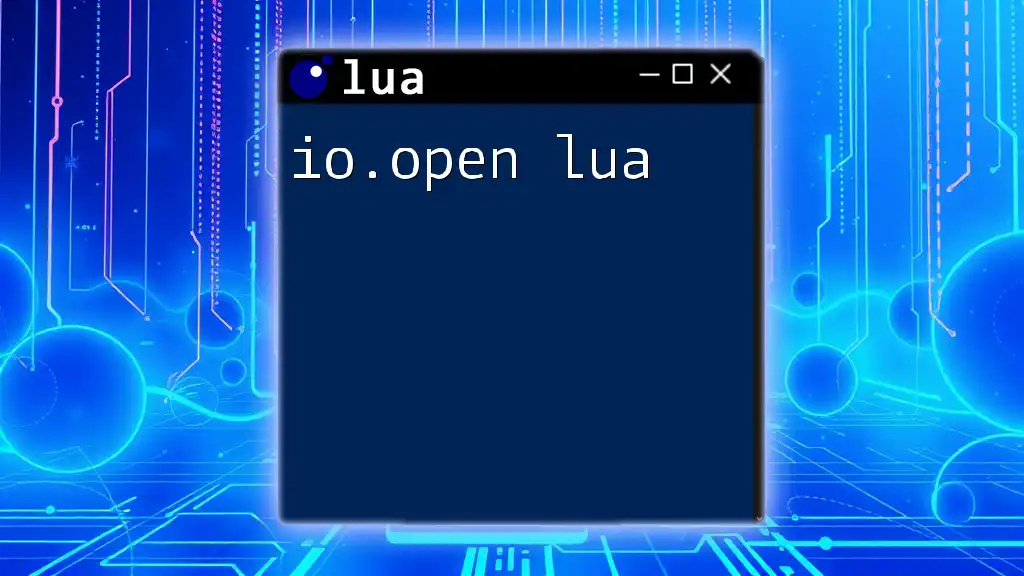
Understanding the Compilation Process
Translation to Bytecode
When you compile Lua code using LuaC, it translates your code into bytecode. This bytecode is a set of instructions that the Lua virtual machine can execute. It's a more efficient representation of your original source code, and it allows the Lua interpreter to run scripts with improved performance.
To see the bytecode generated by your compiled Lua script, you can use:
luac -l hello.luac
This command displays the compiled bytecode, providing insight into what the compiler has generated.
File Types and Extensions
In the context of Lua, it’s essential to differentiate between file types. The standard Lua script files have the `.lua` extension, while compiled bytecode files utilize the `.luac` extension. Having these distinct file types helps to understand which files are source code and which are ready for execution.
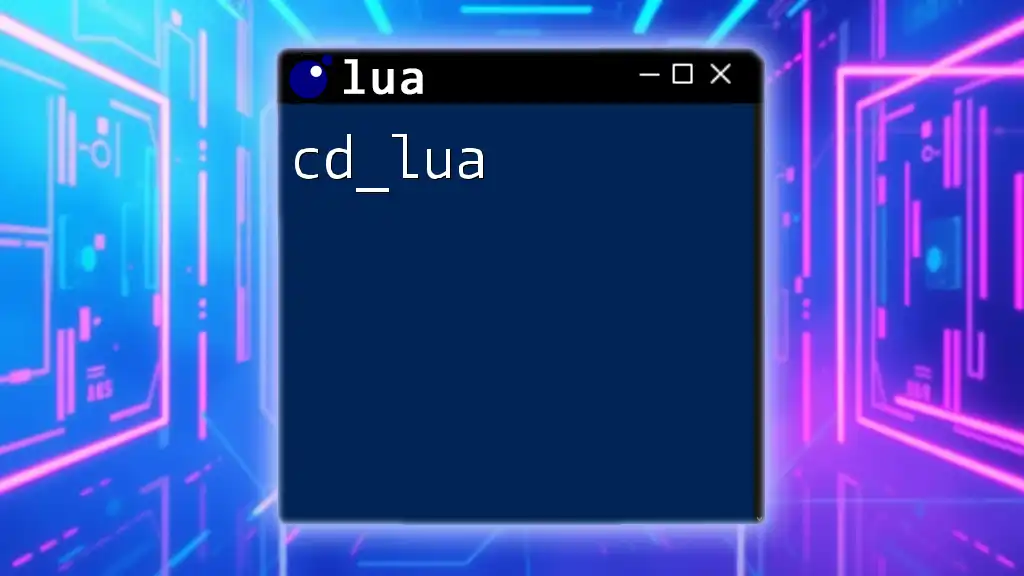
Optimizing Compiled Lua Code
Best Practices for Writing Efficient Lua Code
To write efficient Lua code suitable for compilation, follow best practices like:
- Minimizing global variables: Using local variables instead of globals can improve accessibility speed and prevent potential variable collisions.
- Refactoring long loops: Long loops can often be optimized by breaking them into smaller components or using table-based algorithms.
For example, instead of:
for i = 1, #myTable do
process(myTable[i])
end
You could write:
local myTable = {...}
local length = #myTable
for i = 1, length do
process(myTable[i])
end
This small change can reduce the time needed to access the table length.
Using LuaJIT for Enhanced Performance
LuaJIT (Just-In-Time Compiler) is an alternative that provides even better performance than LuaC. LuaJIT compiles scripts at runtime, allowing it to optimize the code dynamically based on usage patterns.
Here’s how you can compile a script with LuaJIT:
luajit -o hello.jit hello.lua
LuaJIT can provide significant speed enhancements, particularly in computationally intensive applications.
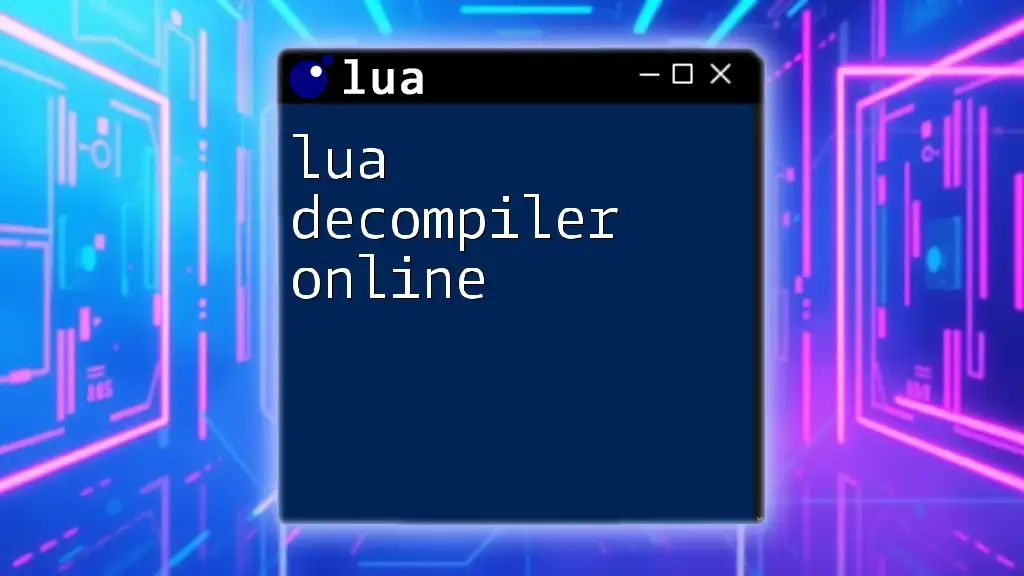
Debugging Compiled Lua
Common Issues and Solutions
When compiling Lua scripts, you may encounter a variety of issues, such as syntax errors or missing modules. Understanding how to interpret and resolve compile-time error messages is crucial. For example, if you receive an unexpected token error, reviewing the script for missing symbols can quickly identify the problem.
Using Debugging Tools
Debugging tools tailored for Lua can significantly ease the development process. Tools such as ZeroBrane Studio or LuaInspect can help track down issues in both interpreted and compiled scripts. These tools often provide features like breakpoint support, step execution, and variable monitoring, which are invaluable for efficient debugging.
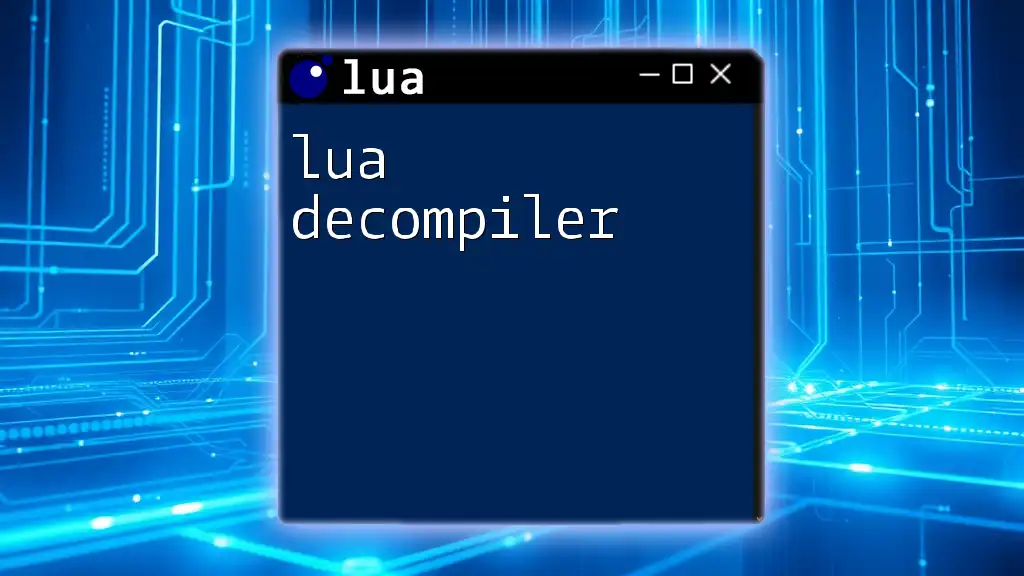
Use Cases for Compiled Lua
Gaming Applications
Compiled Lua has a prominent role in the game development industry. Engines like Corona SDK and Love2D use compiled Lua to leverage its fast execution speeds, enabling the smooth performance of game applications.
Embedded Systems
In the realm of IoT and embedded systems, compiled Lua is favored for its lightweight nature and minimal resource requirements. Using compiled Lua in hardware applications can greatly enhance performance while maintaining low memory usage.
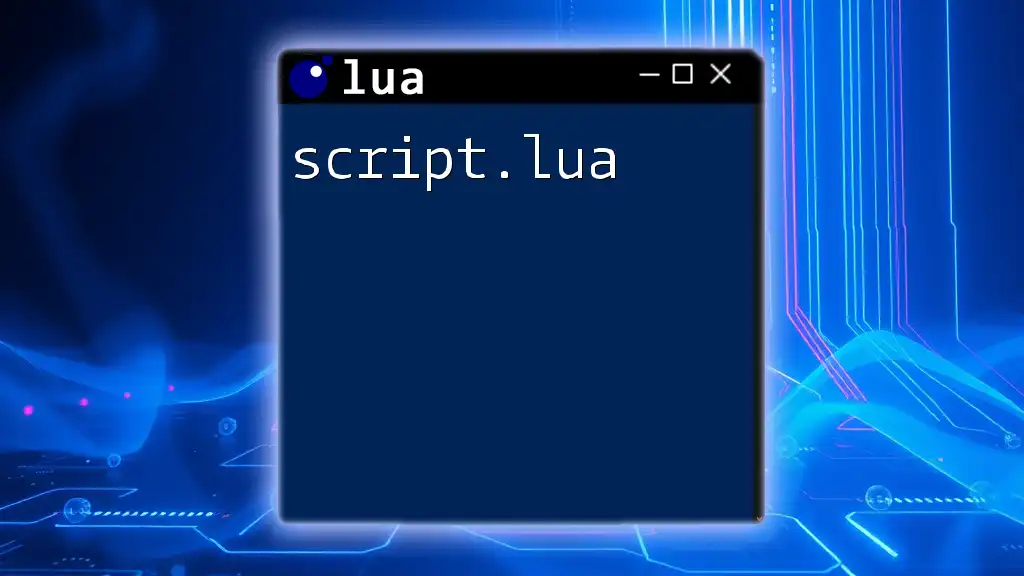
Conclusion
Compiled Lua offers numerous advantages, including improved performance, reduced memory usage, and robust error detection. By incorporating these elements into your Lua development practices, you can create more efficient, reliable, and high-performing applications.
Now is the perfect time to dive into compiled Lua, experiment with its features, and discover how it can elevate your projects to the next level.
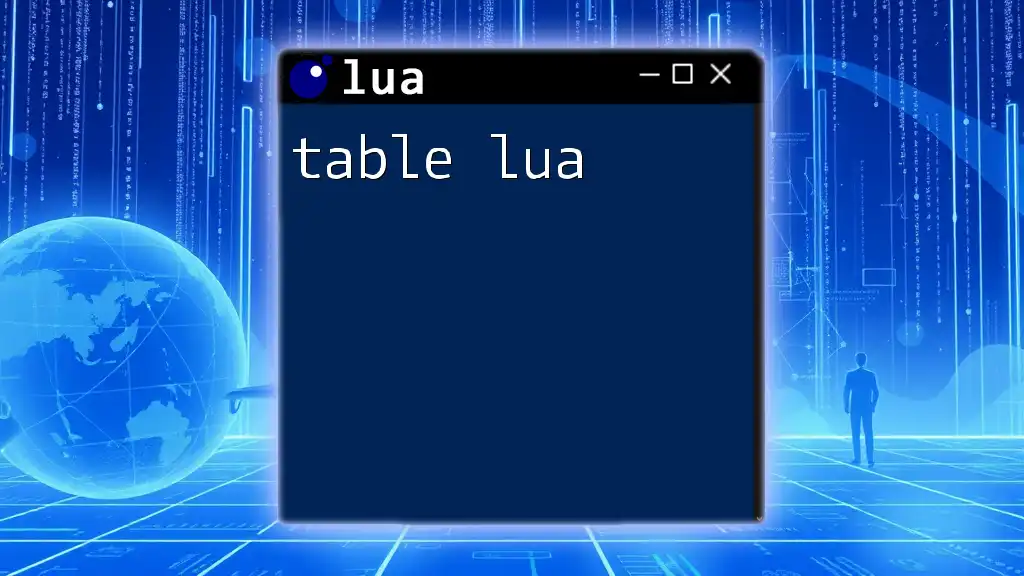
Appendix A: Glossary of Terms
- Bytecode: The intermediate representation of Lua scripts that the Lua virtual machine executes.
- LuaJIT: A Just-In-Time Compiler for Lua that enhances performance by compiling scripts at runtime.
- LuaC: The standard Lua Compiler that translates Lua scripts into bytecode.
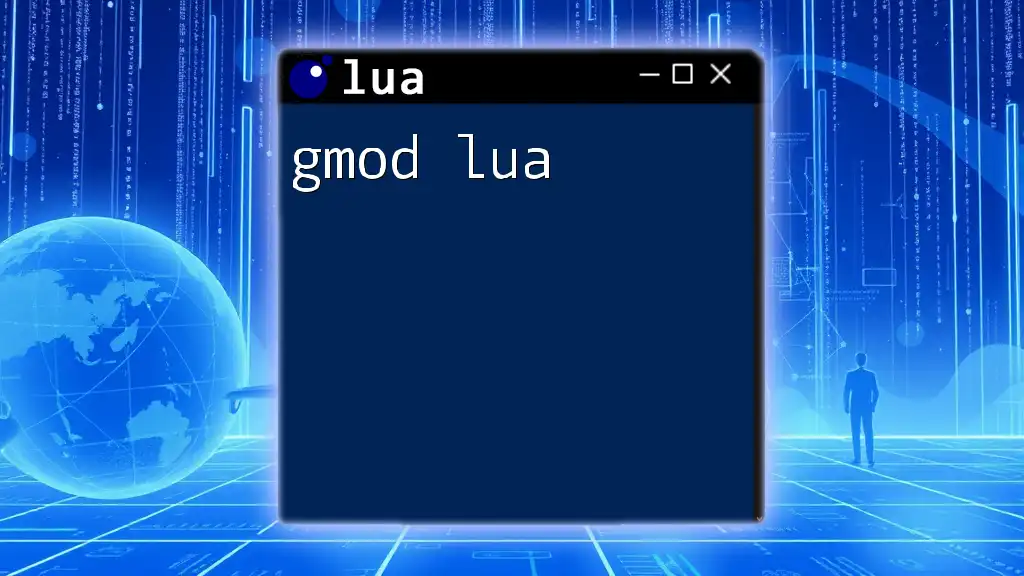
Appendix B: Additional Resources
For those looking to expand their understanding of compiled Lua, numerous resources are available, including official Lua documentation, community forums, and dedicated Lua programming books.

